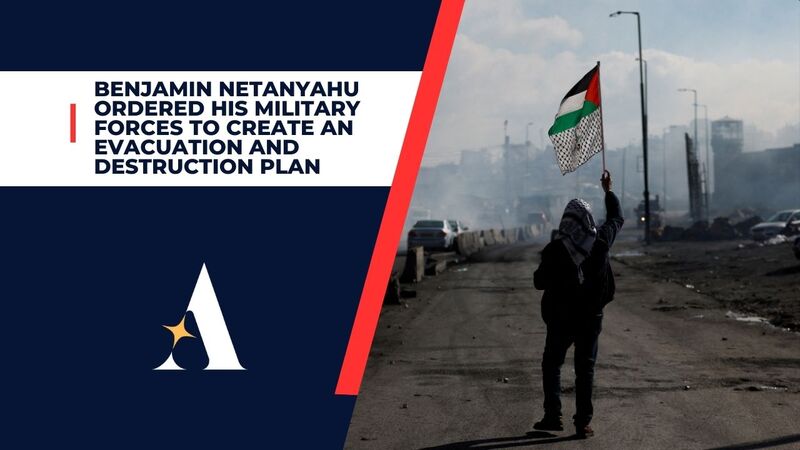Rafah, on Egypt’s border with Gaza Strip, is home to over one million Palestinians awaiting Israel’s plan to evacuate and launch a ground assault against Hamas in southern Gaza Strip. Prime Minister Benjamin Netanyahu ordered his military forces to create an evacuation and destruction plan “aimed at dislodging four Hamas battalions that have deployed within Rafah.”
Israel’s plan to evacuate Rafah
With over one million people packed into Gaza’s Rafah town on its border with Egypt, Israel has ordered officials to prepare an evacuation plan before any planned ground operation in the region. This has caused alarm among aid groups and its principal backer – the US National Security Council Spokesman John Kirby noted that military operations should prioritize civilian protection over violating international law during military operations there.
Activists note it is unclear where those living in the city would be relocated, given most are from towns and cities further north where fighting has continued and supplies remain scarce. Egypt has sealed its border, creating fear among many displaced residents that they will never be allowed back home; others worry crossing into Egypt would be too risky or lengthy a journey for families with young children.
Israel’s plan to assault Rafah
Rafah now houses more than half of Gaza’s 2.3 million residents, as they comply with Israeli evacuation orders ahead of the military’s ground offensive. Prime Minister Netanyahu recently warned that it may become next on Israel’s list for targeting, prompting fear among residents living there.
Israel has ordered its military to draft a “double plan” designed to clear civilians out of combat zones in Rafah and disband Hamas battalions still present there, according to Benjamin Netanyahu’s statements claiming total victory would require massive operation in this southern city bordering Egypt.
The United States, Israel’s primary ally, has made clear it will not support any attack that fails to safeguard civilians. National Security Council Spokesman John Kirby told reporters Thursday that they would not back any operations with significant risk of civilian casualties; he declined further details. If Israel were to attack Rafah it could gain control of Gaza-Egypt border crossing – an entryway for humanitarian aid supplies into Gaza – by controlling it from above.

Rafah’s civilian population
Israel’s bombardment has forced hundreds of people from other parts of Gaza into Gaza City’s overcrowded streets and apartment buildings, leaving them fearful with no place else to turn for shelter.
Since October 7 when Israeli soldiers first stormed Rafah’s southern border defenses and killed over 100, thousands have descended upon it in large numbers, more than tripling its population. Families now crowd into rooms in apartment buildings or tent cities dotting the landscape while some gather in classrooms of U.N. schools or relatives’ homes for shelter.
On Friday, Netanyahu issued orders to his military to formulate plans for evacuating Rafah in the southern Gaza Strip near Egypt’s border. According to his office, it would be impossible for Israel to achieve its aim of crushing Hamas if four battalions of Hamas remained there; aid agencies warned of potential bloodbath and Washington, Israel’s main supporter, stated it will not back an offensive that doesn’t safeguard civilians.
Rafah’s infrastructure
Israel’s offensive on Gaza has been devastating, killing at least 27,600 Palestinians since Tel Aviv unleashed its war against Gaza’s population of 2.3 million on October 7.
Egypt has not authorized people to leave Rafah through its gates; however, under an arrangement negotiated by Qatar some foreign passport holders and critically ill Gazans may make their way across.
Mahmoud Abbas, who exercises partial self-rule in Rafah enclave, warned any Israeli plan to invade Rafah would be disastrous and “cross all red lines.” It said an invasion would cause civilian casualties and destruction while forcing residents out. Forcefully forcing civilian population out would violate international law while UN agency WFP is concerned about potential impacts such as an assault on infrastructure such as electricity or water services; without which, Rafah residents will face significant challenges, they said.
- Friday Intraday Trading Sees Nvidia’s stock Market Cap Momentarily Cross $2 Trillion
- Trump’s January 6 Civil Cases Proceed While Criminal Case Is Halted
- Trump Delivers Speech at the Columbia Black Conservative Federation Gala
- Trump Declares Strong Support for IVF Following Alabama Supreme Court Decision
- Schumer in Ukraine Declares US Backing During House Aid Standoff






